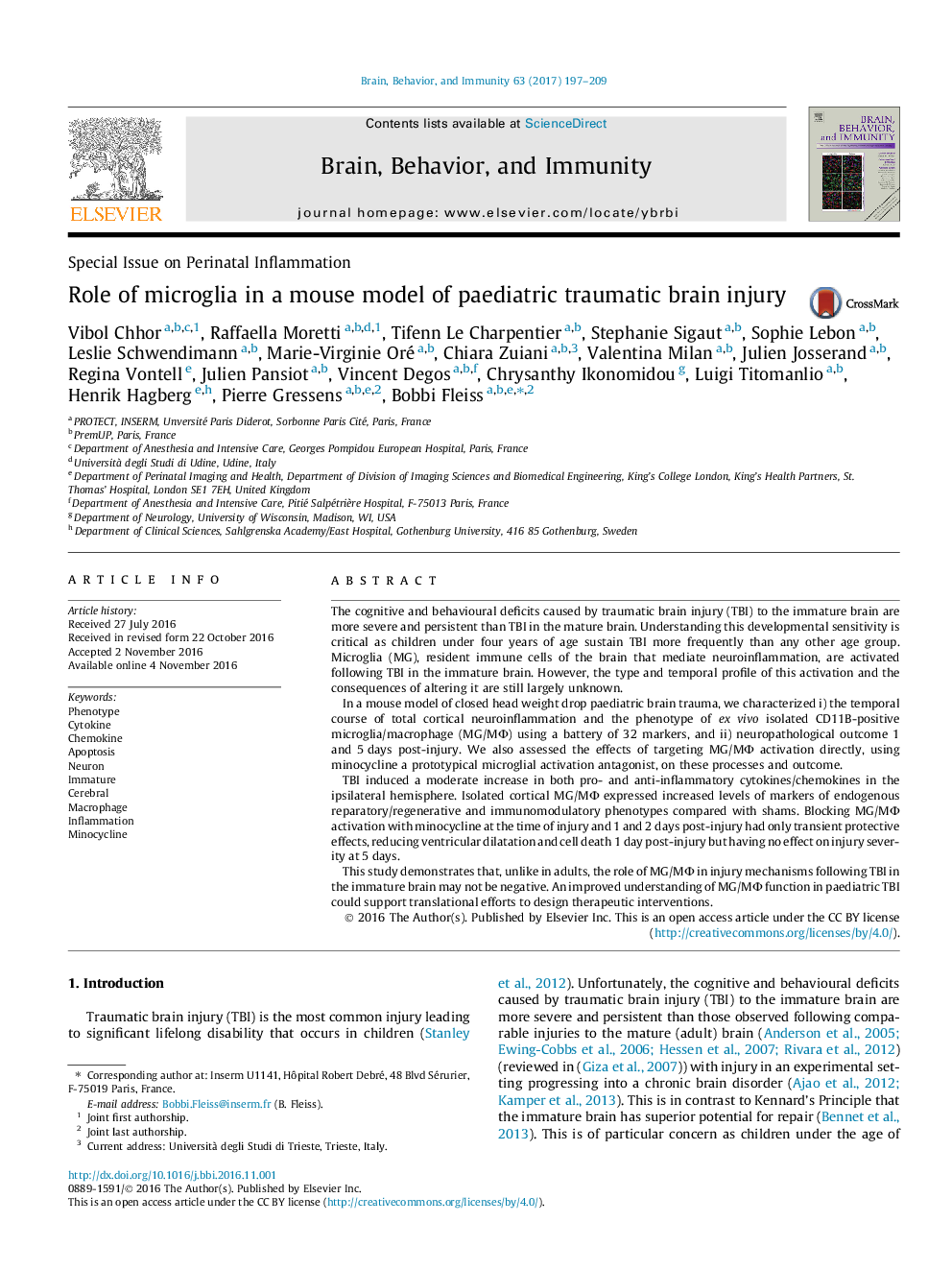| کد مقاله | کد نشریه | سال انتشار | مقاله انگلیسی | نسخه تمام متن |
|---|---|---|---|---|
| 5040674 | 1473904 | 2017 | 13 صفحه PDF | دانلود رایگان |
- TBI in neonates leads to tissue loss and microglia/macrophage activation over several days.
- Microglia/macrophage are predominantly of a reparatory/regenerative or immunomodulatory type after neonatal TBI.
- Microglia/macrophage inhibition (using minocycline) after TBI is only transiently neuroprotective.
The cognitive and behavioural deficits caused by traumatic brain injury (TBI) to the immature brain are more severe and persistent than TBI in the mature brain. Understanding this developmental sensitivity is critical as children under four years of age sustain TBI more frequently than any other age group. Microglia (MG), resident immune cells of the brain that mediate neuroinflammation, are activated following TBI in the immature brain. However, the type and temporal profile of this activation and the consequences of altering it are still largely unknown.In a mouse model of closed head weight drop paediatric brain trauma, we characterized i) the temporal course of total cortical neuroinflammation and the phenotype of ex vivo isolated CD11B-positive microglia/macrophage (MG/MΦ) using a battery of 32 markers, and ii) neuropathological outcome 1 and 5 days post-injury. We also assessed the effects of targeting MG/MΦ activation directly, using minocycline a prototypical microglial activation antagonist, on these processes and outcome.TBI induced a moderate increase in both pro- and anti-inflammatory cytokines/chemokines in the ipsilateral hemisphere. Isolated cortical MG/MΦ expressed increased levels of markers of endogenous reparatory/regenerative and immunomodulatory phenotypes compared with shams. Blocking MG/MΦ activation with minocycline at the time of injury and 1 and 2 days post-injury had only transient protective effects, reducing ventricular dilatation and cell death 1 day post-injury but having no effect on injury severity at 5 days.This study demonstrates that, unlike in adults, the role of MG/MΦ in injury mechanisms following TBI in the immature brain may not be negative. An improved understanding of MG/MΦ function in paediatric TBI could support translational efforts to design therapeutic interventions.
Journal: Brain, Behavior, and Immunity - Volume 63, July 2017, Pages 197-209
